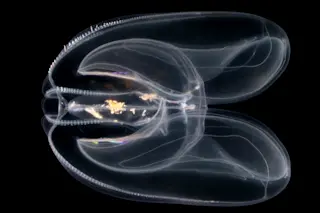Dienekes Pontikos has a long post up on how reticulation within phylogenetic trees may distort our perception of human natural history when we force the data into a more conventional tree (i.e., bifurcation after bifurcation). The concrete reason for this rethinking is the high probability of "archaic admixture" into the dominant genetic signal of anatomically modern African humanity, both within Africa and outside of it. Dienekes proposes that when ancient DNA from early modern Eurasians is analyzed then a large portion of the portrait will be unmasked. For example, if high levels of admixture were present very early on then you would see very divergent regional populations because of persistence and continuity of local hominin population substructure. The pre-African Eurasians from each given region would have contributed substantially to the genetic makeup of the first modern humans who flourished in Europe and East Asia. On the other hand, if admixture ...
The pruned tree
Explore the role of archaic admixture in human history and how it shapes our understanding of modern human evolution.
More on Discover
Stay Curious
SubscribeTo The Magazine
Save up to 40% off the cover price when you subscribe to Discover magazine.
Subscribe












